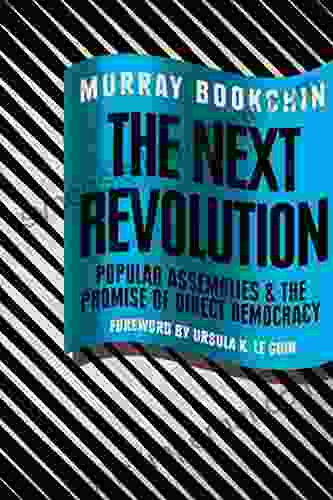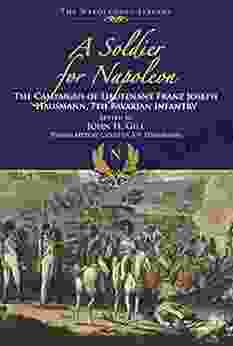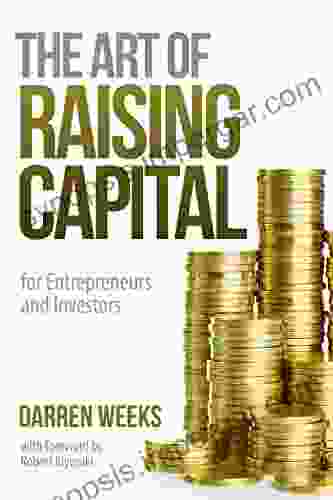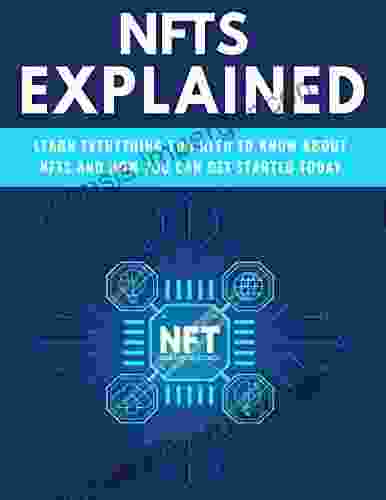Why Good People Do Bad Things: Uncovering the Hidden Motives That Drive Our Actions

We all have an innate belief that good people do good things and bad people do bad things. But what if this simple dichotomy is not always true? What if even the most upstanding citizens are capable of committing heinous acts? This is the unsettling premise of "Why Good People Do Bad Things," a groundbreaking book that delves into the complex and often disturbing reasons why seemingly good people engage in hurtful, unethical, or even criminal behavior.
4.4 out of 5
| Language | : | English |
| File size | : | 684 KB |
| Text-to-Speech | : | Enabled |
| Screen Reader | : | Supported |
| Enhanced typesetting | : | Enabled |
| Word Wise | : | Enabled |
| Print length | : | 258 pages |
Drawing upon cutting-edge research in psychology, neuroscience, and behavioral economics, the book's author, Dr. David Buss, argues that our moral behavior is not simply a matter of choice. Rather, it is influenced by a host of factors, including our evolutionary history, our social environment, and even our genes. Buss challenges our assumptions about morality and the nature of humanity, revealing that even the most altruistic among us can be driven to do terrible things under the right circumstances.
Why Do Good People Do Bad Things?
Buss identifies several key factors that can contribute to the development of bad behavior in good people:
- Situational factors: The situation in which we find ourselves can have a powerful influence on our behavior. For example, people who are under stress, tired, or intoxicated are more likely to act impulsively and make poor decisions.
- Social influences: The people we interact with can also shape our behavior. We are more likely to engage in bad behavior when we are surrounded by others who are ng the same thing. This is known as the "social contagion" effect.
- Biological factors: Our genes and brain chemistry can also play a role in our moral behavior. Studies have shown that people with certain personality traits, such as low levels of empathy or high levels of aggression, are more likely to engage in antisocial behavior.
It is important to note that no single factor is responsible for bad behavior. Rather, it is usually a combination of factors that leads people to do things they later regret. However, by understanding the factors that can contribute to bad behavior, we can take steps to mitigate their effects and make better choices.
The Dark Side of Human Nature
"Why Good People Do Bad Things" also explores the darker side of human nature. Buss argues that we all have the potential to commit terrible acts, even if we never do. This is because we are all descended from a long line of ancestors who survived by being ruthless and aggressive. As a result, we have inherited a legacy of violence and deception that can surface under the right circumstances.
Buss points to several examples of seemingly good people who have committed horrific crimes. These include:
- The Stanford Prison Experiment, in which ordinary college students were randomly assigned to be prisoners or guards. Within a matter of days, the guards began to abuse their power, while the prisoners became passive and submissive.
- The My Lai Massacre, in which American soldiers killed hundreds of unarmed Vietnamese civilians. The soldiers involved were not inherently evil; they were simply following Free Downloads and conforming to the group mentality.
- The Holocaust, in which millions of innocent people were murdered by Nazis. The perpetrators of the Holocaust were not monsters; they were ordinary people who had been indoctrinated into a hateful ideology.
These examples show that even the most civilized people are capable of great evil. This is a sobering thought, but it is one that we must confront if we want to understand the true nature of humanity.
"Why Good People Do Bad Things" is a challenging and thought-provoking book that will change the way you think about morality and human behavior. Buss's research shows that there is no such thing as a pure "good" or "evil" person. Rather, we are all complex creatures with the potential for both good and evil. The key to living a moral life is to understand the factors that can lead us to do bad things, and to take steps to mitigate their effects.
If you are interested in learning more about the dark side of human nature, I highly recommend reading "Why Good People Do Bad Things." It is a fascinating and disturbing book that will challenge your assumptions about morality and the nature of humanity.
About the Author
Dr. David Buss is a world-renowned evolutionary psychologist and author. He is a professor of psychology at the University of Texas at Austin, where he directs the Laboratory of Human Nature Research. Buss has written extensively on human mating, conflict, and aggression. His research has been featured in numerous academic journals and popular media outlets, including The New York Times, The Wall Street Journal, and The Washington Post.
Free Download Your Copy Today
To Free Download your copy of "Why Good People Do Bad Things," please visit Our Book Library.com or your local bookstore.
4.4 out of 5
| Language | : | English |
| File size | : | 684 KB |
| Text-to-Speech | : | Enabled |
| Screen Reader | : | Supported |
| Enhanced typesetting | : | Enabled |
| Word Wise | : | Enabled |
| Print length | : | 258 pages |
Do you want to contribute by writing guest posts on this blog?
Please contact us and send us a resume of previous articles that you have written.
 Book
Book Novel
Novel Page
Page Chapter
Chapter Text
Text Story
Story Genre
Genre Reader
Reader Library
Library Paperback
Paperback E-book
E-book Magazine
Magazine Newspaper
Newspaper Paragraph
Paragraph Sentence
Sentence Bookmark
Bookmark Shelf
Shelf Glossary
Glossary Bibliography
Bibliography Foreword
Foreword Preface
Preface Synopsis
Synopsis Annotation
Annotation Footnote
Footnote Manuscript
Manuscript Scroll
Scroll Codex
Codex Tome
Tome Bestseller
Bestseller Classics
Classics Library card
Library card Narrative
Narrative Biography
Biography Autobiography
Autobiography Memoir
Memoir Reference
Reference Encyclopedia
Encyclopedia James L Fitzsimmons
James L Fitzsimmons Debra Aiden
Debra Aiden David Satcher
David Satcher David Thomson
David Thomson David Sokolin
David Sokolin Delena Tull
Delena Tull Theodore Dwight
Theodore Dwight Ding Yaping
Ding Yaping Michael Howard
Michael Howard Dick K Nanto
Dick K Nanto Diana Solomon
Diana Solomon Stephen D Youngkin
Stephen D Youngkin David Ridd
David Ridd Dick Gregory
Dick Gregory Denise Jolley
Denise Jolley Delaney Ruston
Delaney Ruston Desmond Seward
Desmond Seward Janet Belsky
Janet Belsky Milton William Cooper
Milton William Cooper David Nutt
David Nutt
Light bulbAdvertise smarter! Our strategic ad space ensures maximum exposure. Reserve your spot today!

 Norman ButlerEmpowering the People: Popular Assemblies and the Promise of Direct Democracy
Norman ButlerEmpowering the People: Popular Assemblies and the Promise of Direct Democracy
 Dustin RichardsonSoldier For Napoleon: A Gripping Historical Tale of War, Courage, and...
Dustin RichardsonSoldier For Napoleon: A Gripping Historical Tale of War, Courage, and...
 Leslie CarterAnimal Welfare and Sustainability: Burleigh Dodds' Innovative Approach in...
Leslie CarterAnimal Welfare and Sustainability: Burleigh Dodds' Innovative Approach in...
 Chris ColemanIgnite Your Entrepreneurial Success: A Comprehensive Guide for Entrepreneurs...
Chris ColemanIgnite Your Entrepreneurial Success: A Comprehensive Guide for Entrepreneurs... Guy PowellFollow ·10k
Guy PowellFollow ·10k William WordsworthFollow ·15k
William WordsworthFollow ·15k Mason PowellFollow ·18.8k
Mason PowellFollow ·18.8k Kenneth ParkerFollow ·6.5k
Kenneth ParkerFollow ·6.5k Foster HayesFollow ·15.3k
Foster HayesFollow ·15.3k Edmund HayesFollow ·7.9k
Edmund HayesFollow ·7.9k Marcus BellFollow ·4.9k
Marcus BellFollow ·4.9k Eli BlairFollow ·7.1k
Eli BlairFollow ·7.1k

 Ivan Turgenev
Ivan Turgenev38 Art Made During The Pandemic Digitally Enhanced Art...
By [Author's Name] The year 2024 was a time...

 F. Scott Fitzgerald
F. Scott FitzgeraldAmazing Cooking Guide To South Beach Diet: Your Culinary...
Embark on a...

 Zachary Cox
Zachary CoxGeneral History of Chinese Film: A Journey Through Time...
Origins and...

 Cristian Cox
Cristian CoxUnderstanding Antidepressants: An In-Depth Guide to...
Unleashing the Power of...

 Jeremy Cook
Jeremy CookUnlock the NFT Revolution: A Comprehensive Guide for...
The world of Non-Fungible Tokens (NFTs) has...

 Kevin Turner
Kevin TurnerSeneca and Roman Slavery Under Nero's Rule: An In-Depth...
During the reign of...
4.4 out of 5
| Language | : | English |
| File size | : | 684 KB |
| Text-to-Speech | : | Enabled |
| Screen Reader | : | Supported |
| Enhanced typesetting | : | Enabled |
| Word Wise | : | Enabled |
| Print length | : | 258 pages |




